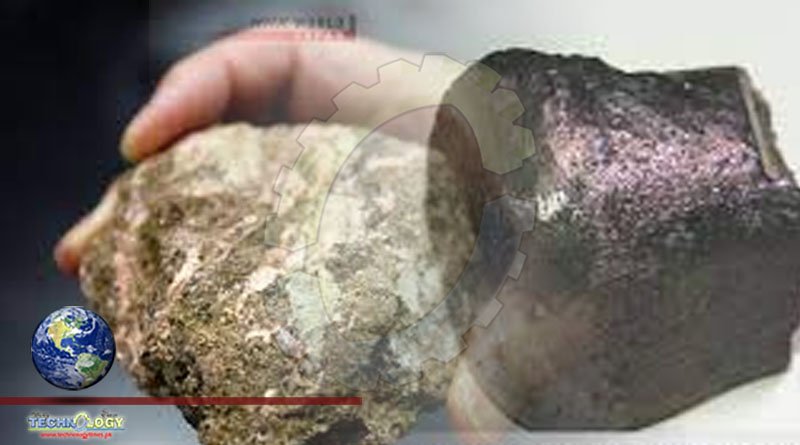Pressure has mounted on PH administration to extend a deadline set for Lynas to guarantee practically radiation-free operations at its Malaysian plant by July 1.

Pressure has mounted on the Pakatan Harapan-led (PH) administration to extend a deadline set for Lynas, the largest rare earth miner outside of China, to guarantee practically radiation-free operations at its Malaysian plant by July 1.
In February, authorities renewed Australian miner Lynas’ licence for three years, but they refused to remove the license’s restrictions requiring it to move the “cracking and leaching” of lanthanide concentrate offshore and to only refine intermediate materials at its Gebeng facility in Pahang, close to Kuantan.
Fears of environmental and health risks from the waste product have been raised as a result of these refining processes, particularly the release of radiation, which Lynas, the largest rare earth miner insists has no effect on the naturally occurring levels near Gebeng.
Before filing an appeal against the licence conditions on April 28, Lynas, which supplies a tenth of the rare earth needed to make high-tech products like smartphones and flatscreen TVs, has stepped up its defence of its business practises.
The Pahang facility has been defended by opposition lawmakers from the Perikatan Nasional (PN) coalition, who claim that it can serve as a source of technology transfer and enable Malaysia to compete in the crucial market for cutting-edge applications.
Last month, Wan Ahmad Fayhsal Wan Kamal, the leader of the Parti Pribumi Bersatu Malaysia youth, said in Parliament that the issue of rare earth extends beyond science to geopolitics and our economy.
“If these circumstances continue, we might as well close the plant.” Since February, Lynas has responded to numerous allegations that its operations pose a risk to the environment and public health.
It also called for Prime Minister Anwar Ibrahim to intervene in the licence decision, which “has put the livelihoods of thousands of people at risk,” at a gathering of its employees on February 23.
The Straits Times reported that Chang Lih Kang, the minister for science, technology, and innovation, has been urged to at the very least postpone the July 1 deadline until later this year so that Lynas can finish constructing a substitute cracking and leaching refinery in Australia.
A potential closure of the S$1 billion facility would not just be a huge blow to Lynas – which has yet to fire up other production plants – but will also impact the geopolitically sensitive supply of rare earths crucial to make products such as mobile phones, rechargeable batteries and military assets. China controls four-fifths of the world’s rare earth production.
According to a source with knowledge of the private discussions prior to the hearing on April 28 that will be presided over by the minister, “the request is for six months as the Australian plant won’t be completed in time.”
In an interview with ST last month, Mr. Chang, vice-president of Datuk Seri Anwar’s Parti Keadilan Rakyat (PKR), declined to comment on the Lynas controversy, citing his sole discretion to decide the appeal. “At this point in the appeal process, it would be best if I kept quiet.
The choice is definitive. Early or mid May,” the man replied. Politically sensitive because PH campaigned on a platform of undoing the Barisan Nasional (BN) government’s approval of Lynas’ operations before the 2018 general election, which it ultimately won.
After the election of last year produced Malaysia’s first-ever hung parliament, the Umno-led BN has since become a crucial ally in PH chief Anwar’s so-called “unity government.”
When Lynas announced its plans to establish a facility in Malaysia more than ten years ago, there was fierce public opposition, leading to worries that there would be a repeat of the toxic radiation that earlier rare earth projects had caused in Malaysia.
However, after PH came into power in 2018, it gradually relaxed the restrictions on Lynas so that it could continue operating. This sparked criticism from the public and added to the PH coalition’s rising tensions. The PH government ultimately fell in March 2020 as a result of the defection of numerous MPs from PKR and Bersatu.
Days before PH was overthrown, it was revealed that Lynas had been granted a three-year operating permit by the government, subject to the removal of cracking and leaching from Malaysia and the construction of a waste disposal site within a year.
There is no evidence that Lynas filed an appeal against these 2020-imposed restrictions. According to ST, the permanent disposal facility is more than 30% finished and is being built by a company owned by Pahang Regent Hassanal Abdullah, the son of Malaysia’s reigning King Abdullah Ahmad Shah.